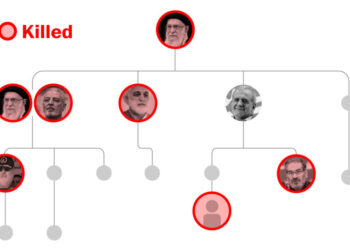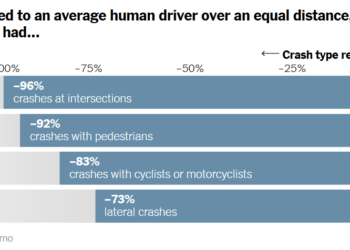8 New Books We Love This Week
Every week, the critics and editors at the New York Times Book Review pick the most interesting and notable new...
War Hero Says Random People Off the Street Would Handle Iran Better Than Trump
A decorated military veteran has sharply criticized President Donald Trump’s approach to Iran, claiming that even “random people off the...
DHS Insiders Spill What Really Got ICE Barbie Fired
Department of Homeland Security (DHS) staff say Kristi Noem sealed her own fate with a humiliating performance in two congressional...
Hidden details in the video of a US submarine sinking an Iranian warship, according to a WWII expert
A split image showing a US Navy submarine torpedoing an Iranian warship. US Department of DefenseA US Navy submarine sank...
McDonald’s C.E.O. Takes a Big Bite Out of a Burger. Maybe Scratch ‘Big.’
When the McDonald’s chief executive, Chris Kempczinski, posted a video of himself eating lunch last month, it was not the...
Almost every Democratic AG just sued Trump over tariff refunds, demanding money back now
Some two dozen states challenged President Donald Trump’s new global tariffs on Thursday, filing a lawsuit over import taxes he...
Iran’s regime maintains its grip, despite devastating losses
The U.S. and Israeli air campaign against Iran has decimated the highest ranks of political and military leadership, destroyed critical...
Anne Hathaway Delivers a Haunting Performance on Dark Pop Song ‘Burial’ From Her New A24 Movie ‘Mother Mary’
Anne Hathaway is stepping behind the microphone for her new movie, Mother Mary, and the film’s first single is out...
Scouted: Ruggable Brings Liberty’s Signature Floral Prints to Its Washable Rug Collection
Scouted selects products independently. If you purchase something from our posts, we may earn a small commission. Few home innovations...
What’s Going On in This Graph? | March 11, 2026
Twenty years ago, self-driving cars were only found in futuristic science fiction movies. But today, you may see them on...














